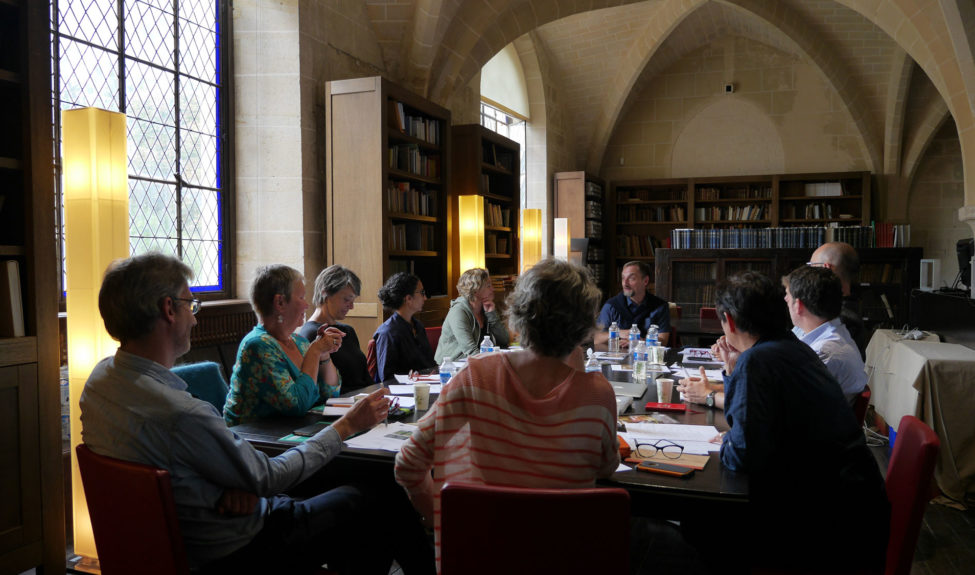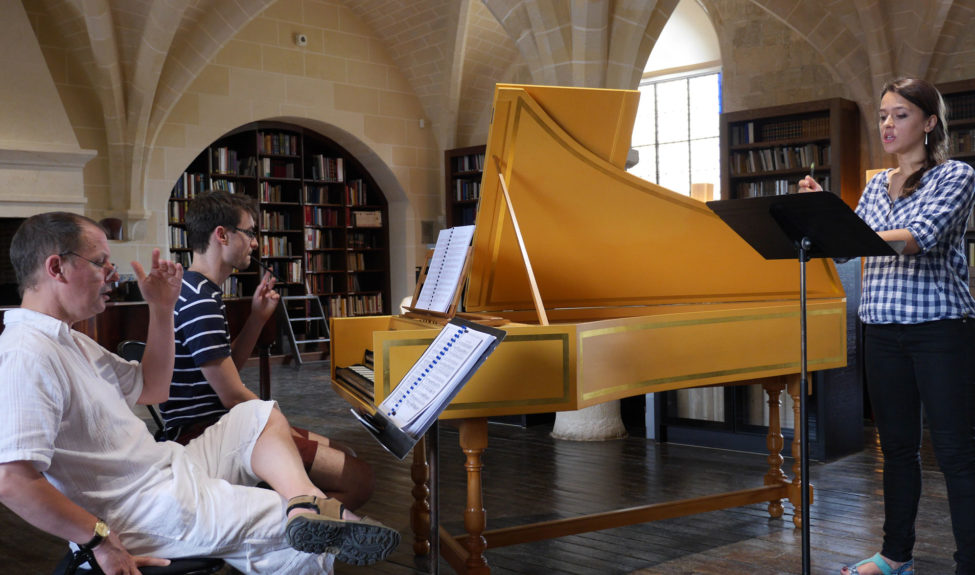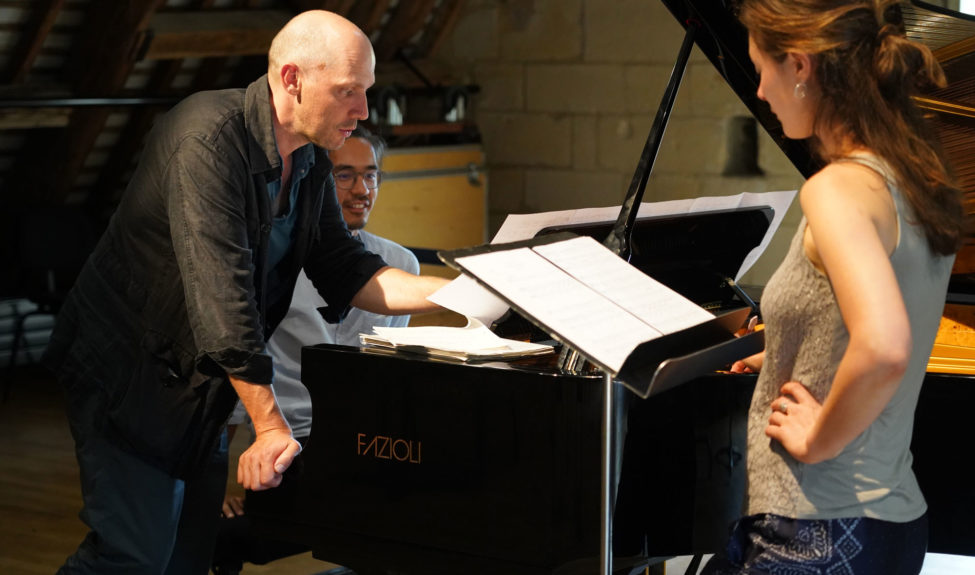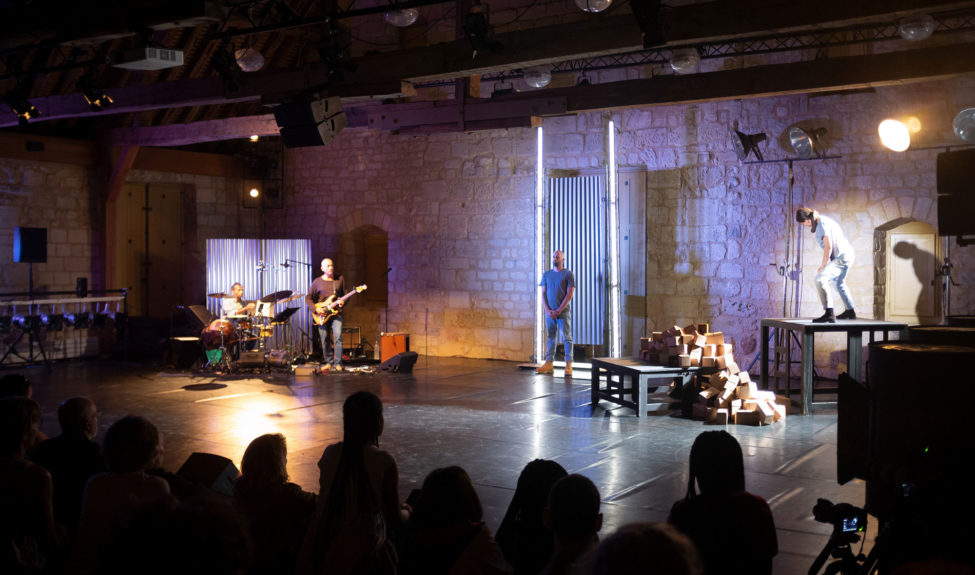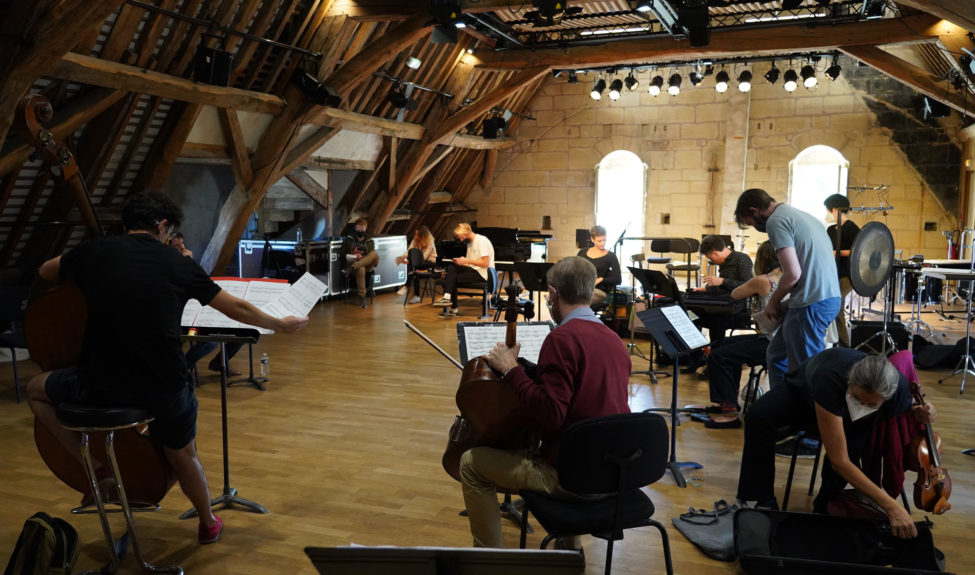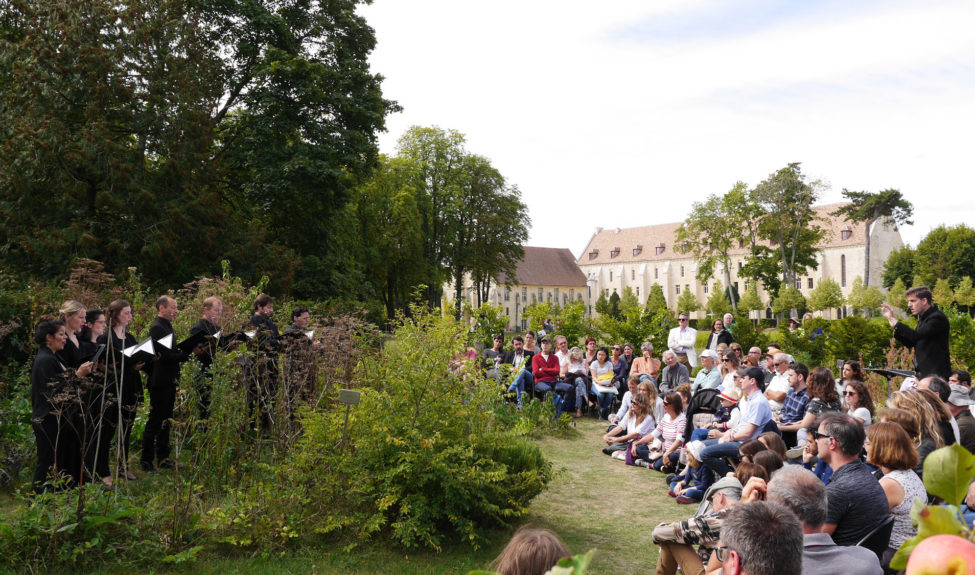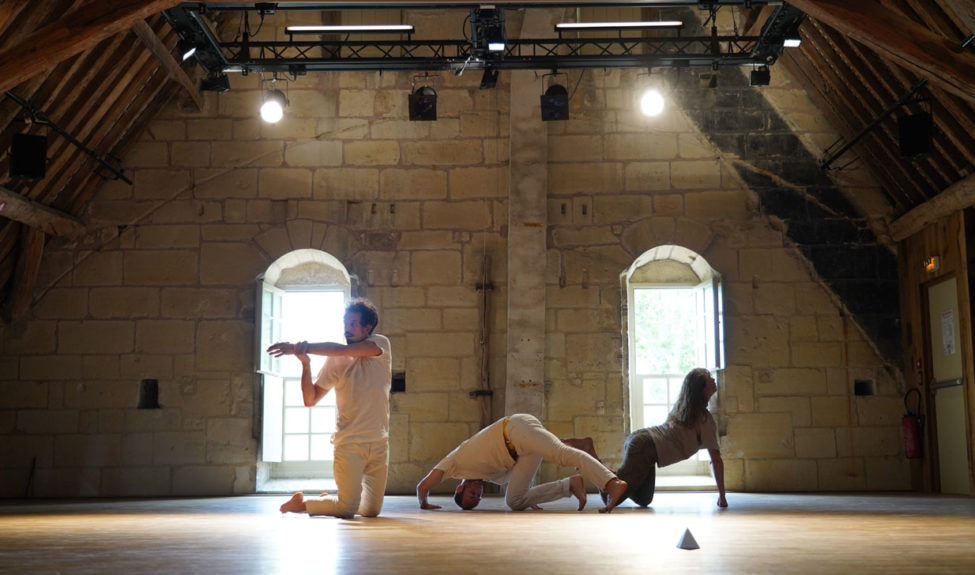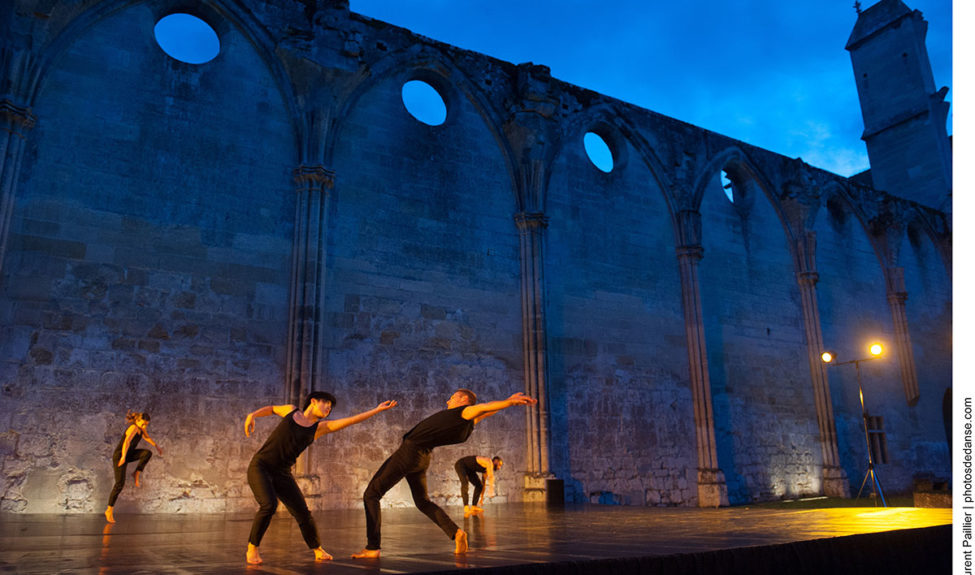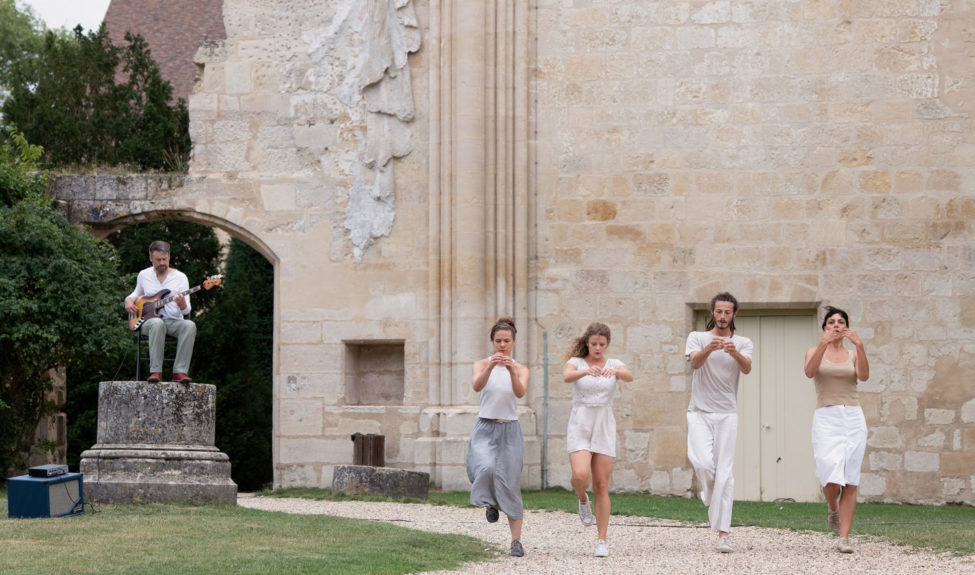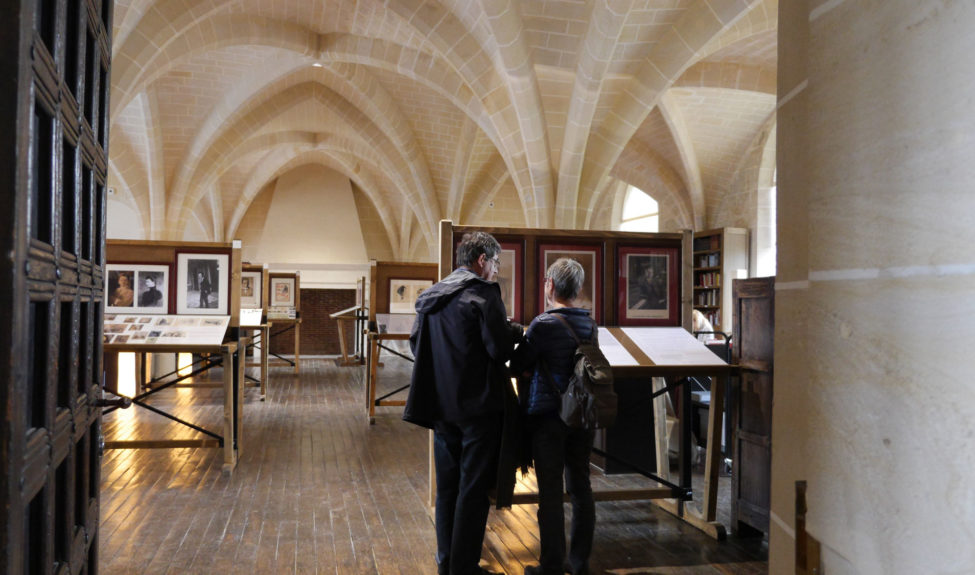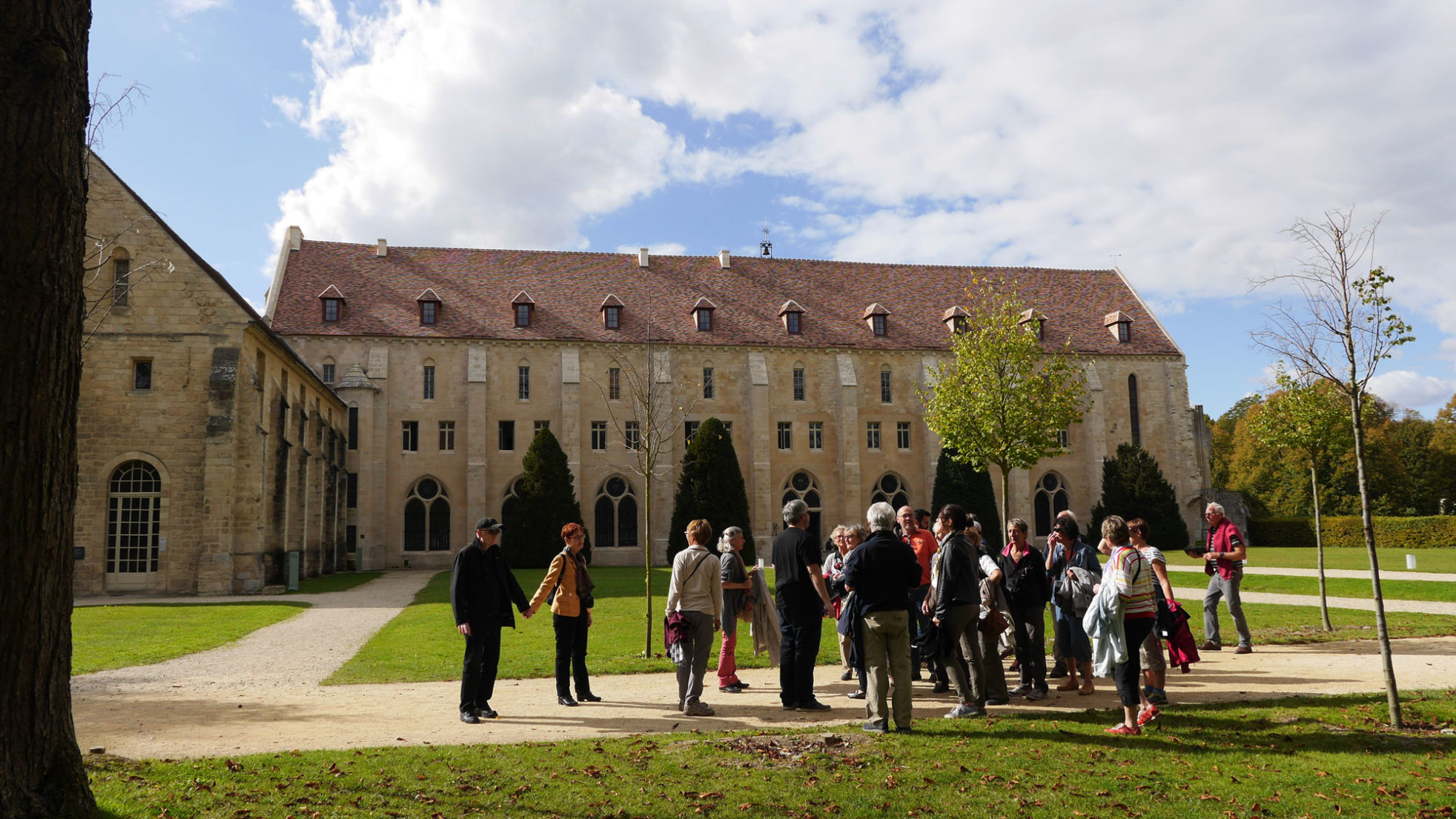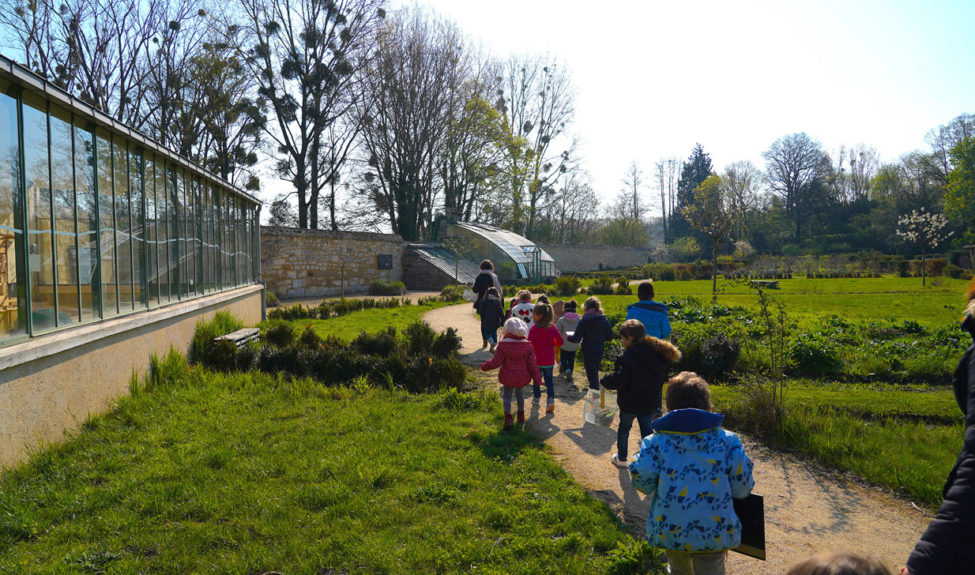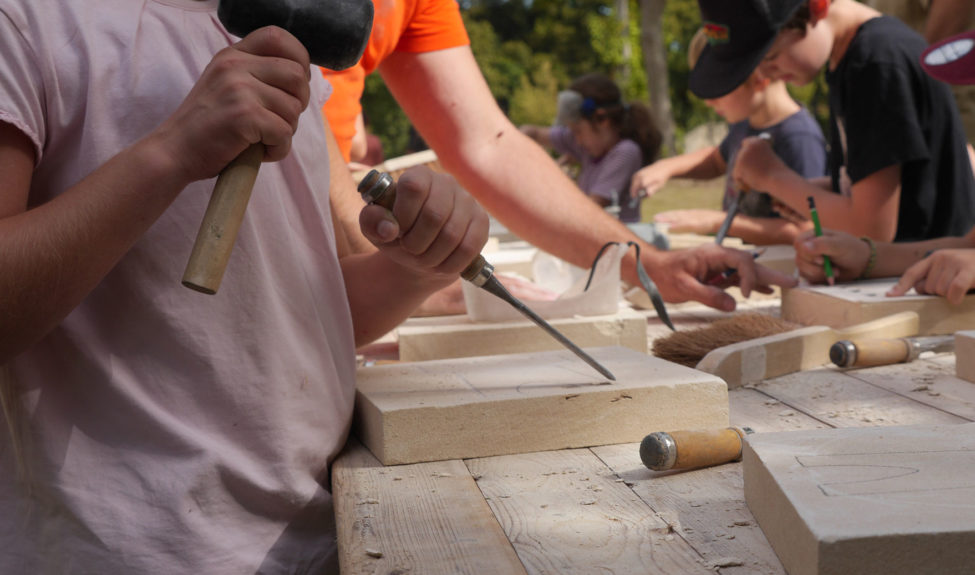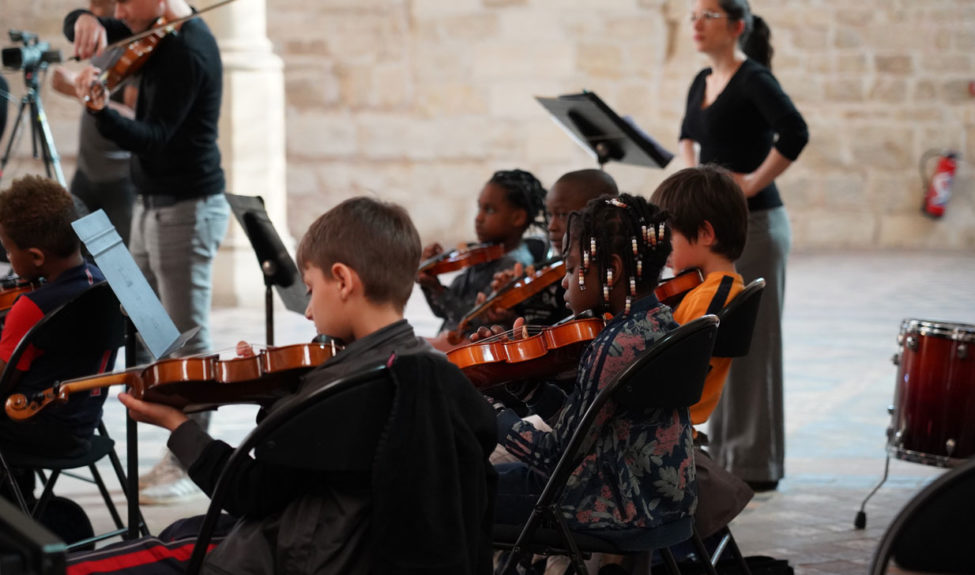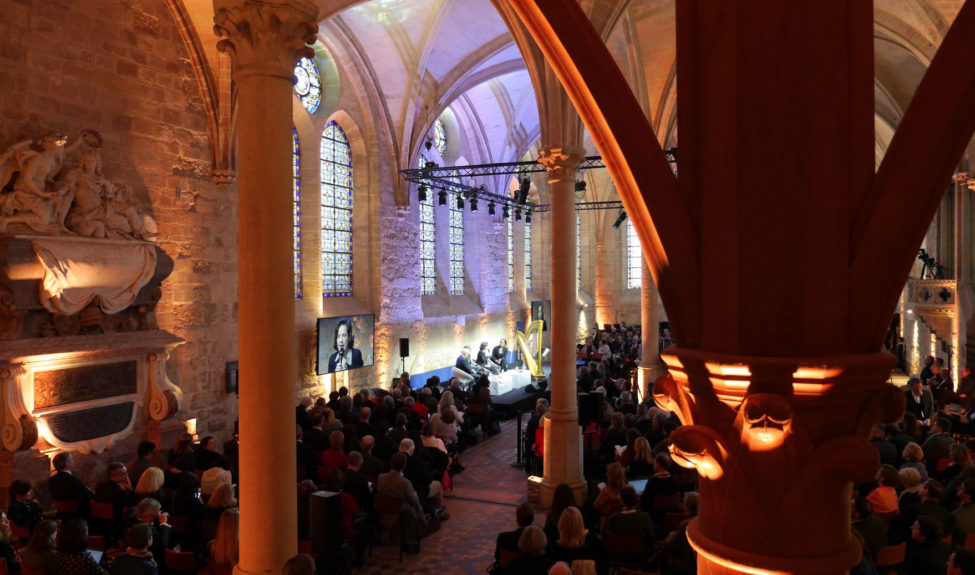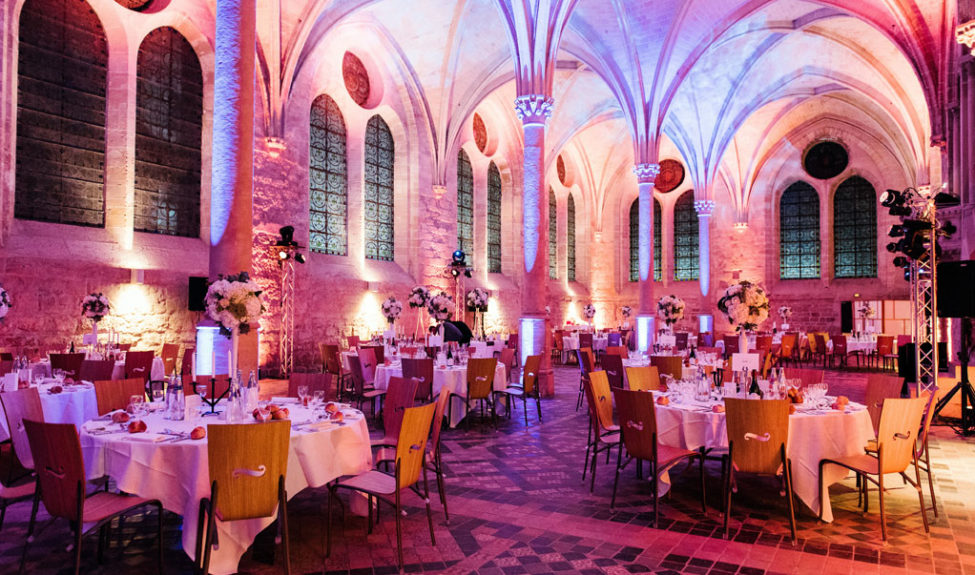Focusing on Human sciences
First French public utility foundation dedicated to culture, the Royaumont Foundation has been supporting intellectuals and artists for more than 60 years.
In 1964, Henry and Isabel Goüin created the “Royaumont Foundation (Goüin-Lang) for the advancement of the human sciences”, to which they donated their abbey. The aim was to continue and consolidate the artistic and intellectual activity within the abbey, which had become, over time, an important place of exchange for a whole generation of French and foreign intellectuals, particularly in the fields of philosophy, literature, sociology and music.
In 1972, the Foundation encouraged the first European attempt at transdisciplinary cooperation between biology and anthropology with the creation of the Royaumont Centre for Human Sciences, chaired by Jacques Monod.
The 1970s were already shaping up to be difficult when, on 24 February 1977, Henry Goüin passed away. The following year, the cultural project was relaunched under the direction of Francis Maréchal. It offered research, professional training and creative programmes in the fields of music, poetry, visual arts and human sciences (ethnology, musicology, etc.) before expanding in 1995 to include choreography and dance.
More recently, a programme of reflection devoted to the study of mankind in his environment has been launched, with the participation of landscape architects, gardeners, scientists, researchers in the humanities and artists, resulting in a biennial series of meetings entitled L’Homme & la Nature (Man & Nature).
The international Center for artists
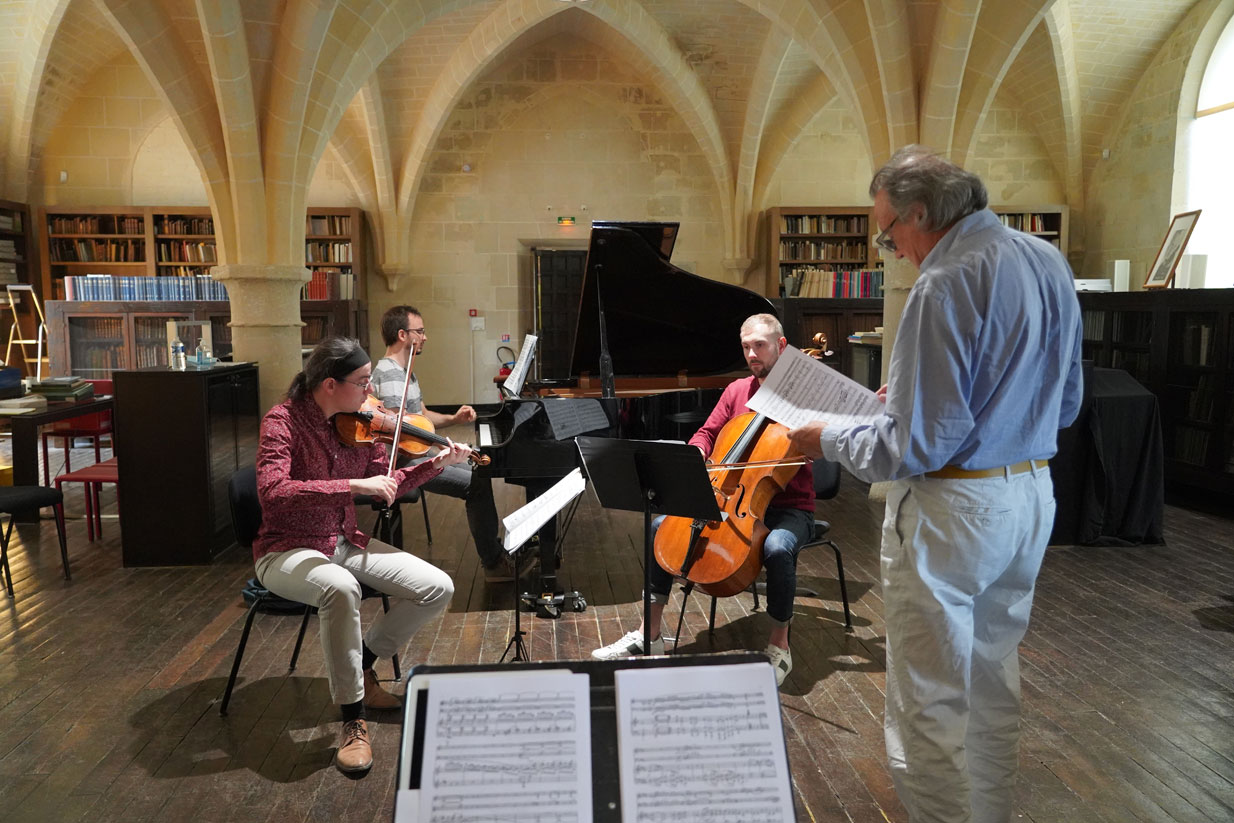
Music and dance, which have been linked in a partnership for 25 years, are now the two areas of artistic activity supported by the Foundation.
Music is divided into two areas: Voice and Repertoire, and Musical Creation. Dance is embodied in the Choreographic Creation division. With the Regional Action department and the Libraries and Resources department, which strengthen the presence of the humanities in the Foundation’s project, the International Centre for Music and Dance Artists is therefore composed of three artistic divisions and two cross-disciplinary departments.
The Foundation prioritises the transmission of knowledge, research and dialogue between artistic languages and practices. Drawing on the presence of three libraries, it is at the forefront of repertoire interpretation informed by the study of historical sources and data. It is also at the forefront of musical and choreographic creation.
Music and dance enrich their creative processes through interaction with other disciplines. The visual arts, poetry and literature, and of course theatre, are therefore called upon for artistic projects but also in the way heritage is viewed.
A heritage open to all
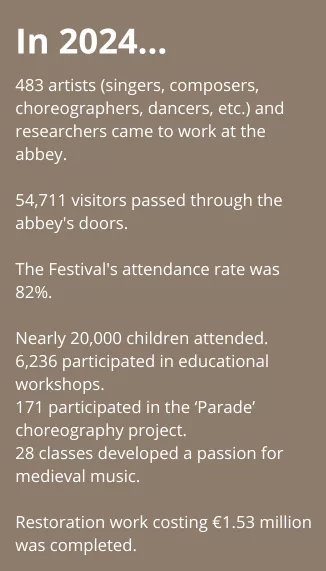
The art of hospitality
Whether for a few hours, a day or a longer stay, Royaumont Abbey welcomes artists, businesses, visitors, spectators and school groups all year round.
Open almost 365 days a year, it welcomes nearly 65,000 visitors annually. Its rich and surprising history can be discovered through guided tours, treasure hunts and digital display pannels.
In order to offer a welcome that matches the site, the Foundation has equipped itself with residential facilities that respect the spirit of the place. To ensure that as many people as possible can enjoy it, it has chosen to make the accommodation and meals, which until recently were reserved for artists and companies, accessible to all at weekends.
A different perspective on music and dance
The Royaumont International Centre for Music and Dance Artists gives the public the opportunity to meet artists and discover areas of artistic creation and musical repertoires outside the mainstream.
Pleins feux, Saison, meetings, workshops for young audiences, family activities, installations and exhibitions take place throughout the abbey, from the historic rooms to the gardens.
Encounters with the works and artists are facilitated by a policy of live and recorded audiovisual broadcasting: videos, radio recordings, Facebook Live, and discographic recordings.
Productions created at Royaumont are also presented on stages outside the abbey, in France and abroad, in partnership with other cultural organisations.
Raising awareness of art, heritage and nature
Access to culture and artistic practice is an essential tool for social inclusion and learning about citizenship. For more than 30 years, the Foundation has been involved in its territory, which is divided between large urban areas and rural areas. It undertakes numerous cultural mediation initiatives in partnership with local authorities, rehabilitation organisations, schools and leisure centres.
Artistic discovery and creation programmes enable young audiences in Val-d’Oise, Ile-de-France and Hauts-de-France to experience heritage, history, biodiversity, garden art, music and dance.
